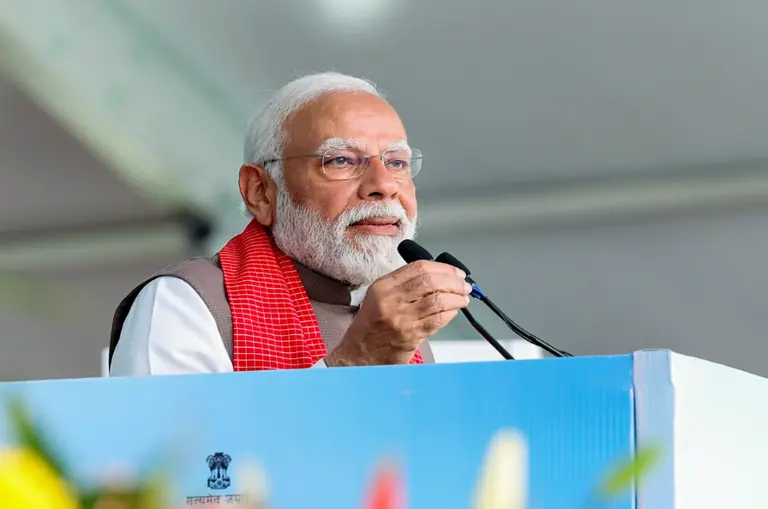
Bihar Man Arrested for Threatening PM Modi: Security Agencies on High Alert (photo - video-grab)
Security agencies in Bihar were put on high alert after a WhatsApp call threatening to kill PM Modi was traced to a resident of Bhagalpur district. The accused, Sameer Ranjan, was arrested on May 29, 2025, from Maheshi village, under the jurisdiction of Sultanganj Police Station. The incident has raised concerns about cybersecurity loopholes and political motives behind such threats.
How the Threat Was Made
According to police reports, the threat call was made from the mobile number of 71-year-old Mantu Chaudhary. However, a technical investigation revealed that Sameer Ranjan used a Virtual Private Network (VPN) to disguise his identity and frame Chaudhary due to an ongoing property dispute.
- The call was intercepted by security agencies, prompting an immediate investigation.
- The accused admitted to making the threat during interrogation.
- Authorities are now probing whether external influences were involved.
Security Measures Taken
Following the threat, security around PM Modi was intensified, with additional Special Protection Group (SPG) personnel deployed. The Bihar Police and Intelligence Bureau worked swiftly to neutralize any potential risks.
- Surveillance was increased at key locations in Patna and Rohtas.
- Cyber experts were called in to analyze the VPN usage and track digital footprints.
- Political leaders condemned the act, calling for stricter cybersecurity laws.
PM Modi’s Bihar Visit and Development Projects
Despite the security scare, PM Modi continued his two-day visit, launching development projects worth ₹48,520 crore in Karakat, Rohtas.
- He addressed a public rally, emphasizing India’s commitment to counterterrorism.
- The projects include infrastructure development, rural electrification, and water conservation initiatives.
- Modi reiterated his zero-tolerance policy against threats to national security.
Legal Consequences for the Accused
Sameer Ranjan has been booked under sections related to criminal intimidation and cybercrime. Authorities are considering invoking the National Security Act (NSA) to ensure strict punishment.
- Legal experts suggest that cyber laws need to be strengthened to prevent misuse of VPNs.
- The case has sparked debates on digital surveillance and national security policies.
Conclusion
The arrest of Sameer Ranjan for threatening PM Modi highlights the growing cybersecurity challenges in India. While the swift action by security agencies ensured the Prime Minister’s safety, the incident raises concerns about digital anonymity and political motives behind such threats. As India moves forward with technological advancements, ensuring robust cybersecurity measures will be crucial.
Also read – Stern Warning to Pakistan: Defense Minister Rajnath Singh Declares End to Terror Games
2 thoughts on “Bihar Man Arrested for Threatening PM Modi: Security Agencies on High Alert”